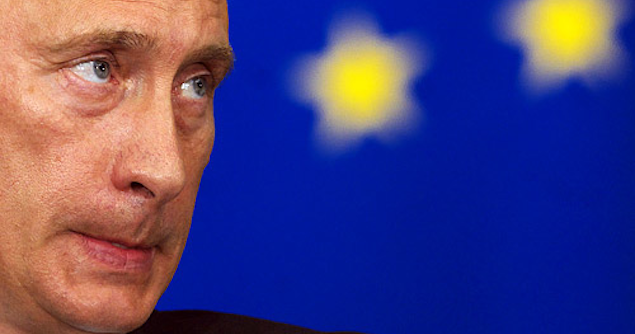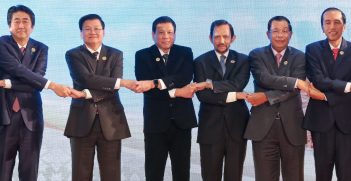Can the EU and the Eurasian Economic Union Be Friends?

Lack of cooperation between the European Union and the Kremlin-dominated Eurasian Economic Union reflects a widening divergence in their political and economic objectives.
The new economic union between Russia, Kazakhstan, Armenia and Belarus has faced challenges in its first months. The economic sanctions against Russia and the fall of the rouble have undermined trade relations within the bloc. Talk about a single currency and free trade zone negotiations with other countries show activity at the regional and international level. It remains to be seen whether the recently established union has the means to become a new regional player.
The Eurasian Economic Union (EEU) is an international organisation, which is focused on regional economic integration. The EEU was formally created on 29 May 2014 when Russia, Belarus and Kazakhstan signed the Eurasian Economic Union Treaty. The press release stated that the union’s objective is to create a ‘common space where goods, services, capital and work force can move freely.’ The EEU came into force on 1 January 2015. Armenia shortly followed, signing the Treaty on 2 January. The states collaborate on energy, industry, agriculture and transport policy. The union comprises 170 million people, has a combined gross domestic product of more than $4 trillion and, with the reduction of trade barriers, is the largest common market in the ex-Soviet space.
The idea of an economic union in Eurasia is not a novel concept. It was first proposed by Kazakhstan’s President Nursultan Nazarbayev in 1994. There have been other Russian-led integration projects before, most recently the Customs Union, which preceded the EEU. Theoretically any European or Asian country can become a member of the EEU. Kyrgysztan has signed the treaty but has delayed its entry until May 2015. Tajikistan has shown interest in joining the union but has yet to ratify the treaty. What makes the EEU different is the way it promotes itself as a regional power, countering the EU and the US influence in the region.
Trade within the EEU has been facing some problems due to the US and EU-led sanctions against Russia, the falling price of oil and the tumbling rouble. Furthermore, there is a chance that the EEU will experience problems with protection tariffs within the bloc similar to the Customs Union. At the political level, the sanctions against Russia have created tensions between the EEU countries. Belarus and Kazakhstan have not joined Russia in banning the import of EU products. The internal tensions taking place within the bloc undermine the unity required for smooth cooperation with other regions and states.
The EEU sees itself as a viable counterpart to the European Union. At the institutional level, the EEU is modelled on the European Union and features its own commission, development bank and court. However, its working structures seem to be more top-down, hinging on the power and domination of Moscow. Following the situation in Ukraine, Belarus and Kazakhstan have been more assertive in emphasising the economic nature of the union and the respect for the sovereignty of each member state.
There have been talks about the benefits of a common economic space from Lisbon to Vladivostok. However, despite the calls from the EEU’s side, the EU has been reluctant to show an interest to cooperate with the EEU. There is a concern that, rather than an economic union between member states, EEU foreign policy is largely dominated by Russia. Also, apart from Belarus and Uzbekistan, all former Soviet states already have strong commercial links with the EU, which might undermine the benefits of creating economic cooperation with the EEU.
At the EEU Summit in Astana in March, Vladimir Putin suggested that the EEU should adopt a single currency. He stated that a common currency would help member states to fend off the current economic crisis. Moscow’s push to create a common currency would make the union even more like a Eurasian counterpart of the EU. Lately the responses of the other members have been less enthusiastic on the issue of the common currency. Kazakhstan’s Deputy Minister of the Economy and Budget Planning stated that common currency is not something the bloc should adopt.
The new union is also looking for international partnerships. It has been undergoing negotiations with Vietnam about a free trade zone agreement. The negotiations are reaching the final stages and the leaders hope to sign the official agreement soon. The EEU is also currently in negotiations over free trade zones with India, Israel, Turkey and Uzbekistan.
The EEU is a new regional player in the Eurasian sphere looking to enhance its position in the area and will no doubt try to actively attract new members. The EEU might prove beneficial for the Eurasian countries that feel they have closer ties with Russia than the EU. But the Russian-led top-down hierarchy of the organisation might just give Russia more power in the region, with marginal economic benefits for other member states. The EU will most likely continue to observe the actions of the EEU, but economic cooperation in the near future is unlikely.
Taru Leppanen is a research intern at the AIIA National Office and is originally from Finland. She has a Postgraduate Diploma in International Security Studies from University of St Andrews and a Bachelor of Art in International Relations from Queen Mary, University of London. This article can be republished with attribution under a Creative Commons Licence.





